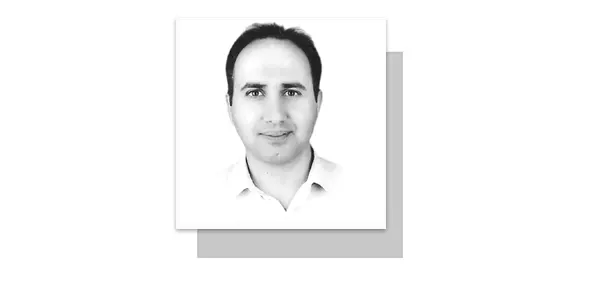IN Pakistan, the deep entrenchment of unethical practices within both social and political spheres has led to a situation where such behaviour is no longer seen as an anomaly but as the norm. Bribery, favouritism, and the manipulation of systems are often considered not moral failings but rather pragmatic tools for navigating the complexities of bureaucracy or overcoming the barriers of political hurdles. This normalization of corruption is the result of a long history marked by political instability, weak governance, and the absence of strong institutional frameworks. In such an environment, those who strive to uphold integrity are often seen as naive or unrealistic, while those who engage in these morally questionable practices are regarded as smart or resourceful. This mindset fuels a cycle in which dishonesty becomes the currency of success, reinforcing a system that rewards short-term gains over long-term justice and perpetuating a culture of corruption across all levels of society.
The feeling of impunity among the wealthy and powerful elites only strengthens this cycle. Other stakeholders holding significant influence in Pakistan often feel immune to prosecution, and many believe that their wealth and social connections protect them from accountability. This sense of powerlessness within the public leads to a lack of trust in institutions, reinforcing the idea that corruption is an unavoidable part of Pakistan’s political and social structure. As a result, many citizens view corruption not as a personal moral failing but as a necessary survival tactic in an unjust system where the ruling elite often remain unscathed.
This systemic acceptance of corruption has contributed to Pakistan’s steady decline on Transparency International’s Corruption Perceptions Index (CPI). The failure of political and administrative leadership to implement meaningful reforms is a major reason for this persistent decline. Structural factors, such as a politicized legal system and weak institutions, have made it difficult to address corruption at its roots. Political patronage and cronyism complicate efforts to break the chains of corruption as the powerful elite often control state institutions and manipulate the system to their advantage. Moreover, political instability and changes in leadership frequently result in anti-corruption measures being viewed not as reforms but as political campaigns aimed at discrediting rivals.
To effectively combat corruption, Pakistan needs to undertake comprehensive reforms across multiple sectors. A robust and transparent judicial system is essential for holding corrupt individuals accountable. Furthermore, political financing must be more strictly regulated, as corruption often stems from the unregulated flow of money in politics. Comprehensive reforms in political financing can help reduce the influence of money in elections and governance, ensuring that public office is not a tool for private gain. Another important step is to ensure the protection of whistleblowers, who often face retaliation for exposing corrupt practices. Establishing a legal framework that safeguards whistleblowers would encourage more citizens to come forward and report corruption without fear of reprisal.
Despite the formation of institutions like NAB, which is tasked with investigating corruption and recovering misappropriated funds, the anti-corruption efforts in Pakistan have largely been ineffective. NAB has frequently been criticized for selective accountability, with those aligned with the ruling party often avoiding scrutiny, while political opponents are targeted. The lack of independence and slow progress in investigations has also tarnished its credibility. The pace at which cases are handled is often too slow and in many instances, corrupt individuals settle for relatively minor penalties, which further erode public trust in the system. Other anti-corruption bodies, such as the Federal Investigation Agency (FIA) and provincial offices, also face similar challenges due to political interference, lack of resources and ineffective enforcement.
The consequences of corruption in Pakistan ripple through vital sectors like healthcare, education and law enforcement, causing profound harm to society. In healthcare, corruption diverts resources, fuels the theft of funds and leads to the distribution of substandard medicines, leaving the poor to suffer in an inefficient system. Bribes for basic medical services erode trust, worsening public health. In education, misappropriated funds and bribery for promotions or grades create a broken system where ghost schools exist only on paper, perpetuating inequality and hindering progress. This corruption fosters a cycle of ignorance that stunts both individual potential and national growth. In law enforcement, bribery and political interference compromise the rule of law, enabling criminals to flourish and eroding justice. Such systemic corruption not only weakens institutions but also poisons the moral fabric of society. To break free from this cycle, Pakistan must strive for integrity and accountability, embracing justice as the foundation for true progress and equality.
Corruption, with its deep and lasting impact, continues to hinder Pakistan’s development, eroding trust in institutions and deepening social and economic divides. It obstructs the potential for growth by diverting critical resources that could otherwise be used to foster prosperity, improve public services and reduce inequality. As corruption becomes entrenched in the political system, citizens lose faith in the democratic process, leading to political apathy, disillusionment and a sense of powerlessness. The resulting inefficiency and inequality trap the most vulnerable in a cycle of poverty, denying them access to essential services such as education, healthcare and justice.
Without substantial reforms and a genuine commitment to transparency, the cycle of corruption will persist, keeping Pakistan from realizing its full potential. Engaging civil society, strengthening media oversight, and ensuring public access to government records are key steps towards increasing accountability and fostering a culture of openness. Ultimately, only by confronting corruption head-on can Pakistan break free from its current constraints and begin building a future founded on justice, integrity and progress, one where the ideals of democracy and fairness are not just aspirations, but attainable realities for all.
—The writer is PhD in Political Science and visiting faculty member at QAU Islamabad.
(zafarkhansafdar@yahoo.com)










